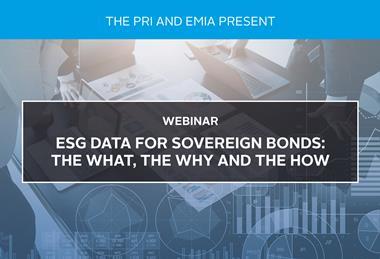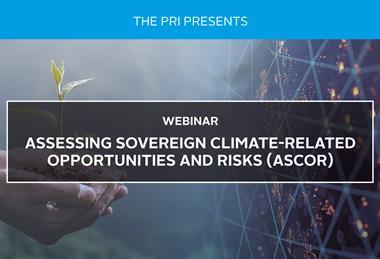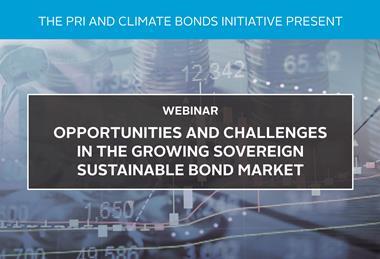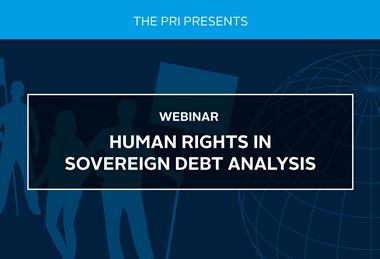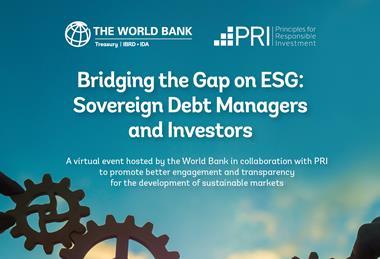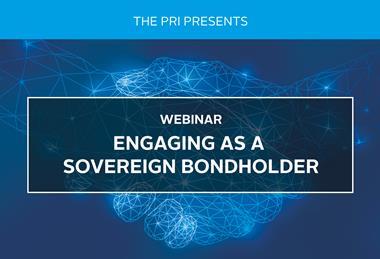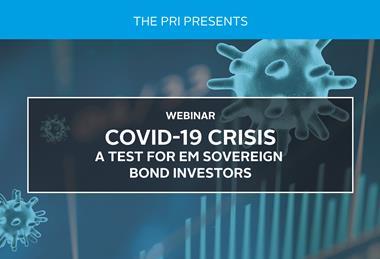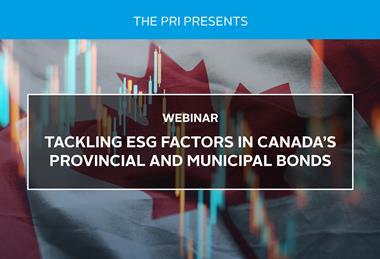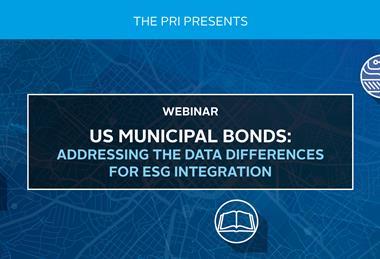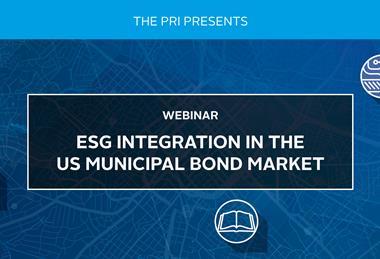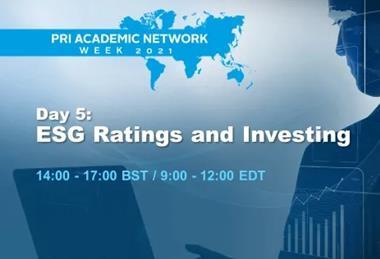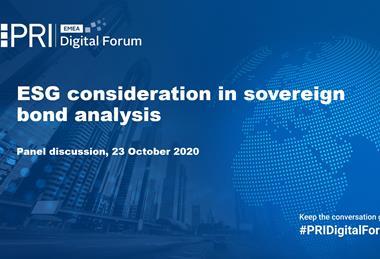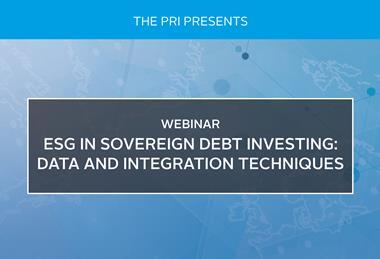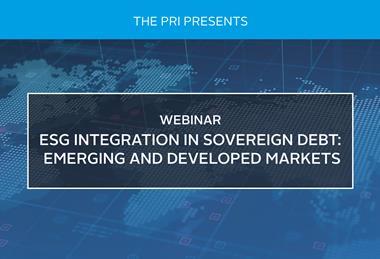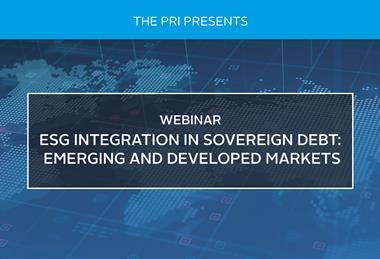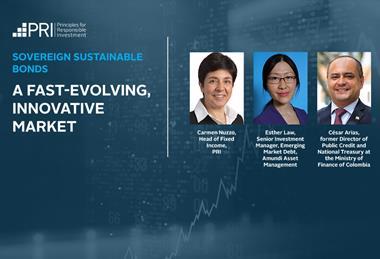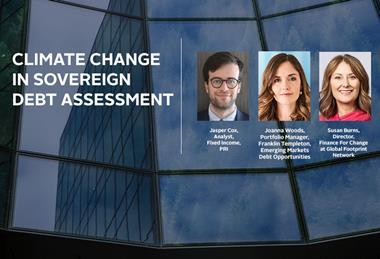Sovereign debt
Traditionally considered to be a risk-free asset class, sovereign debt has been subject to less ESG consideration than other fixed income instruments. However, there is growing appreciation that a more explicit and systematic consideration of ESG factors can enhance risk assessments of government bonds and help drive change towards more sustainable growth models.
The resources below can facilitate the incorporation of ESG factors in sovereign debt analysis and inform engagement on ESG topics with sovereigns and other country stakeholders. The PRI would like to thank the advisory committee for its support. Contact us if you have questions.
Latest reports
Considering climate change in sovereign debt
Investors increasingly consider climate change in sovereign debt assessment – both risks and opportunities for positive impact. This paper helps investors understand the many links between sovereign debt and climate change.
Workshop summaries
Mandate design considerations for sovereign debt net zero portfolios
This article summarises key points from a workshop held in September 2024 where participants in sovereign debt markets discussed challenges and emerging solutions in pursuing net zero targets in portfolio design.
Climate budget tagging: A discussion between sovereign debt investors and issuers
Debt management and budget department officials, alongside investment managers, discussed the purpose of CBT, how countries have started to tag climate expenditure, and its uses for debt issuance and investment analysis. This workshop summary presents the main themes from the discussion.
Bringing together sovereign debt investors and climate information providers
Sovereign bondholders’ demand for data, analytics and broader information about climate change has outpaced supply from third-party providers, whose product offerings were originally developed to serve equity investors. This workshop summarises a discussion between climate information providers and a group of sovereign debt investors.
Bringing together sovereign debt investors and index providers
Investors in sovereign debt met with six index providers to discuss opportunities, and challenges, in creating ESG indexes for the asset class. This workshop summary includes ideas and insights from both groups.
Blog
It’s time for sovereign bondholders to be more vocal on ESG topics
Engagement on ESG issues is an underutilised practice among sovereign bondholders, and this needs to change. Bondholders can play an important role in driving change and shaping ESG outcomes through their investment decisions.
Practical guides
Human rights in sovereign debt: the role of investors
Investors in sovereign debt have less leverage on human rights issues than investors in equities or corporates. But they are not powerless. In this report, we outline three steps sovereign investors can take when considering human rights issues in their investment decisions and we propose a range of responses.
ESG engagement for sovereign debt investors
How existing communication channels can be leveraged to stimulate conversations around ESG topics through a multi-pronged process, which can be mutually beneficial for sovereigns and investors (2020).
A practical guide to ESG integration in sovereign debt
Designed to help signatories integrate ESG factors into research, analysis and the construction of sovereign debt portfolios, this guide includes lists of data sources, practitioner case studies and a comparison of ESG incorporation techniques (2019).
Related resources
Webinars
- Previous
- Next
Podcasts
- Previous
- Next
Jupiter Asset Management: Incorporating human rights considerations into sovereign debt analysis
AP2: Country-level framework to assess human rights
Neuberger Berman: Climate-integrated strategic asset allocation
AkademikerPension: Responsible investment in sovereign bonds
Climate & Nature Sovereign Index: WWF & Ninety One












